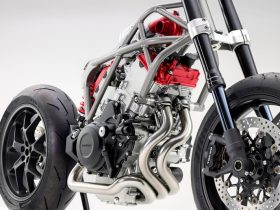Whether your old clunker is staring to cough and wheeze its way to destinations, or you think that this is the best time for a trade-in, or maybe you’ve just grown sick of walking out to the same car each day, buying a new car is not a decision that should be made lightly. Anyone who is thinking about getting a new car should carefully assess the reasons they want one, and look at all the options involved. Don’t get blinded by the prospect of a brand new machine to drive around; evaluate all options, and be sure that it is time to get rid of your old car, and move onto a new one. This article will look at some of the signs that it’s time to buy a new car, as well as some of the alternatives in case you want to hold on to the same automobile.
Mechanical Difficulties
Here it is, mechanical difficulties are the number one reason for getting a new car. Mechanical difficulties can range across a wide variety of problems. If you try to put you car in gear and only get a hollow clunk, chances are the transmission has failed. If your car just won’t start, any number of components in the engine may have gone awry. Anything from the drivetrain, to suspension, to the engine and body can cause a fault large enough to warrant a replacement of the vehicle. Sometimes the cost of repair is just too much, and the best option is to cut your losses and get a new vehicle that is I running right. Of course, if you want to hang on to the car that you have, sometimes there are options. A refinance auto loan can offer extra money for repairs that you may not have on hand. Refinancing a vehicle is straightforward, and can be done in as little as an hour. If your car simply won’t budge, don’t write it off just yet, consider refinancing the vehicle to find money for repairs and save you some cash later on.
Accidents
Accidents happen. Nearly every car owner will experience some type of auto accident over their lifetime, and the results can be as minor as a few dings and scrapes, or so large that the whole car must be replaced. In the case of an auto accident, it is usually the insurance company that decides whether or not a car is to repaired, or “totaled.” If a car is totaled, the decision to get a new vehicle is made for you, and the insurance company will issue a check for what the car is worth, and you can run off to the dealerships ready to buy. If a car is not totaled however, it is up to you to either repair the car and continue driving or repair the car and sell it. Many people elect to sell their cars after an accident.
Trade-In Value or Choice
A lot of people opt to sell their cars while the trade in value is high, netting them a better deal on a new car. Sometimes a person just gets tired of their car and wants a new one. Whatever the reason, it is not uncommon to sell a car that is in good condition. When selling a car in this state, be sure to clean it well and shop around for trade-in deals. It is also beneficial to look into selling your car directly, and using the proceeds for a new vehicle. Consider refinancing in this situation as well. If you are electing to get rid of your vehicle due to high loan payments or costs, refinancing can offer a way to reduce those costs and let you keep your vehicle.
Whatever your reasons for selling, always make sure to evaluate options and the decision to sell or buy before going through with the decision. Such a big choice cannot be made lightly, and ensuring that it is definitely time to sell your car before selling it will leaves you happier and ready to find a new vehicle.








